SAS Legend Gives Preppers Food For Thought

By James Fitzgerald
We live in a world where people wait in line for what is already theirs — food, water, and shelter.
When the European immigrants landed on the shores of the American continent in the first wave of settlement in the 1600s, they quickly cast off the burdens of feudalism and adopted the symbiotic lifestyle of the Native inhabitants. It wasn’t long though until the concept of store credit reared its head among the cash-poor but time-rich pioneers.
Modern society now largely relies on debt to purchase things, and that has given the central banks and corporations a stranglehold on resources, policies and control over who lives or dies. It didn’t take the New World immigrants long to become serfs once again — even though from all mature philosophical and rational viewpoints we all deserve to share in all the resources of the planet, with the utmost respect and appreciation.
The fiat money system has been quite a little trick. And its counterpart, globalism, has been even more compelling in its promises, utilizing “climate change” and “free trade” as its cause célèbres, while slowly eroding personal freedoms and rights and centralizing the control of resources under a tiny group of “elites”.
Capitalism has been brought to its knees by the draconian response to Covid-19, and with it many of its ephemeral promises have evaporated. Both those who have lost their livelihoods in goods and services and those at the consumption end, who face harsh curbs on movement and social interaction, are increasingly looking for ways to disengage from the corporate bureaucracy that has let them down once too often.
The disconnect from Nature and mind control engendered by the corporate custodians of society was evidenced recently when the media announced shortages of toilet paper as Covid lockdown conditions took effect. The reported rush among some people to hoard such an inanimate product may have been a distraction from a larger panic, or well-seasoned plan, underway in the corridors of power.
It might seem grim, but when bureaucrats and bankers are forced to be this explicit, you can be sure they are about to lose their grip on “power”. The human spirit will always rise above the tumult, and Mother Nature will assist it in any and all ways. The attempts by centralized “authorities” to control our minds and resources have reached the comical and absurd, but the American belief in liberty and the pursuit of happiness is the strongest cultural force in the history of the world, and is manifesting once again in an organic and ingenious fashion.
Despots’ depots
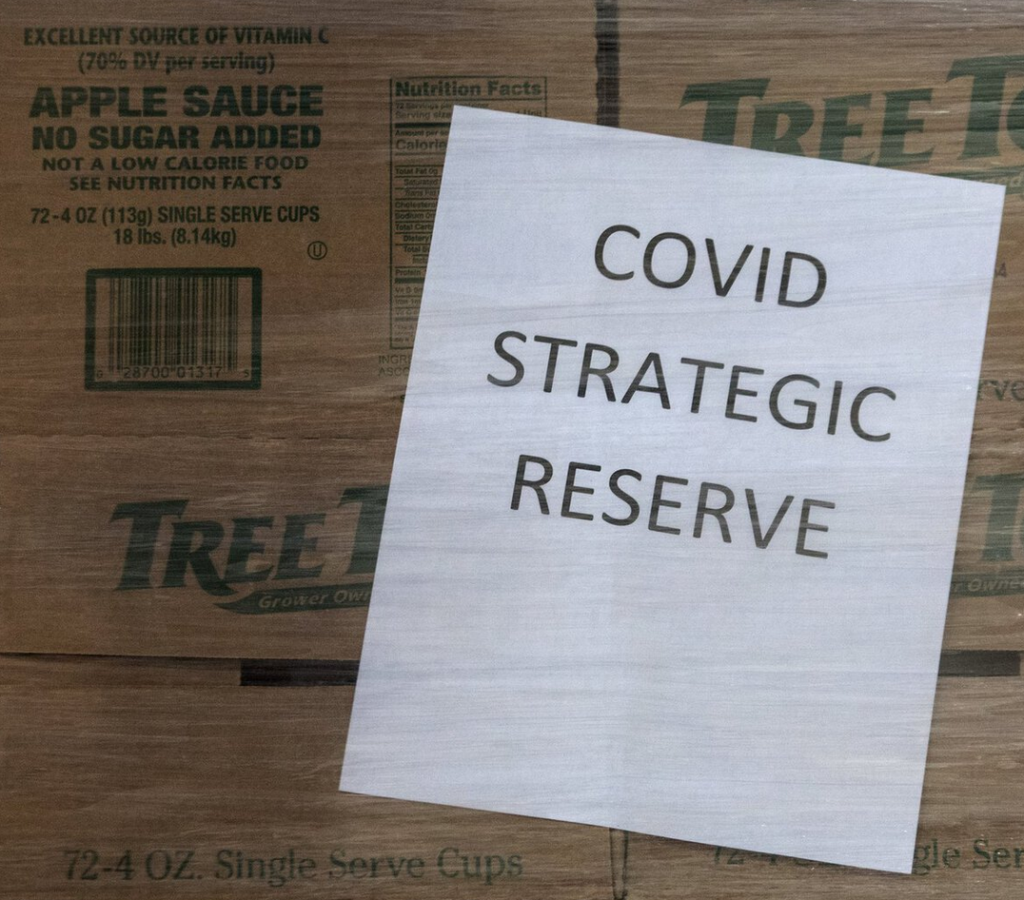
A headline from the Seattle Times on August 8 stated: “From peanut butter to applesauce, Washington state stockpiles tons of food for the need ahead”. A report on the Kiro 7 news channel from a warehouse stocked floor to ceiling with food pallets quoted Derek Sandison, the director of Washington State Department of Agriculture, as saying: “The purpose of this is to provide a reservoir of shelf stable food that is entering the system to support our hunger prevention efforts around the state.” This “Covid strategic reserve” is a response to the early signs of hoarding by shoppers at the onset of the pandemic. The Seattle Times article states that the Department for Agriculture began to stockpile back in April. This is one of the few, if only, articles that focus on plans by states to hoard food. The predominant headlines — such as “Why You Should Think Before Stockpiling For The Coronavirus”; “Pantry Buying Is So Hot There Aren’t Enough Cans”, and that you would have “bean-buyers’ remorse” if you buy too much food — have placed the blame firmly on the consumer. However, Mr. Sandison makes a telling comment in his interview: “There’s extremely high demand. We are competing with every other state. We are competing in some cases with national organizations that are trying to feed America.” This has been going on secretly for months, while citizens have been shamed and blamed by the media for even considering stock piles.
There are canned food shortages because states are spending millions on orders, while consumers are being told the shortages are due to them buying too many non-perishables. The food supply chain has been secretly hijacked, as government agencies move to implement plans outlined by the Rockefeller Institute which say “fundamental change is needed in the US food system”. The “Reset The Table” report outlines neighborhood nutritional programs and snap benefits that would create an enhanced dependency on the state following the dismantling of the existing system. Food is becoming part of the control dynamic and the “universal basic income”. Is it any surprise that meat factories were hit hardest by Covid “infections” and that one of those happens to be the biggest pork producer in the world, owned by Chinese company WH Group, previously known as Smithfield Foods, who shut down in the US? Add to this the external supply problems caused by floods in China and Japan, and harvest issues in Brazil. Food security is a hot topic in the halls of power, and maybe it should be for us too, at ground level.
The National Shooting Sports Foundation says that ammunition sales surged 139 percent nationally during the first six months of 2020, and a ZeroHedge article this month asked “why are so many Americans suddenly relocating, buying guns, and storing-up huge quantities of food?” It’s no great surprise that some people are packing up and heading for the hills, amid inner city riots, pandemic restrictions and economic uncertainty.
Americans complied with 15 days to “flatten the curve”, but 219 days later — with declarations of disaster defiling the Declaration of Independence — it may indeed be time for people to start resting their authority and sovereignty back from the central nexus of state.
Grassroots movement — just don’t eat the grass
And so the “prepper’s” lifestyle is suddenly no longer viewed as a conspiracy theorist’s dream. This subtle but comprehensive form of activism found adherents in the counter culture of the 1960s and among returning Vietnam vets, who had had personal epiphanies amid the jungles and swamps of southeast Asia. But only now have the gloss and glib promises of capitalism really become tarnished among a much wider section of society.
But who is prepping the preppers? Buying guns and stoves and log cabins is one thing, but what about the mental component to living, and hopefully thriving, away from the blandishments of the big city?
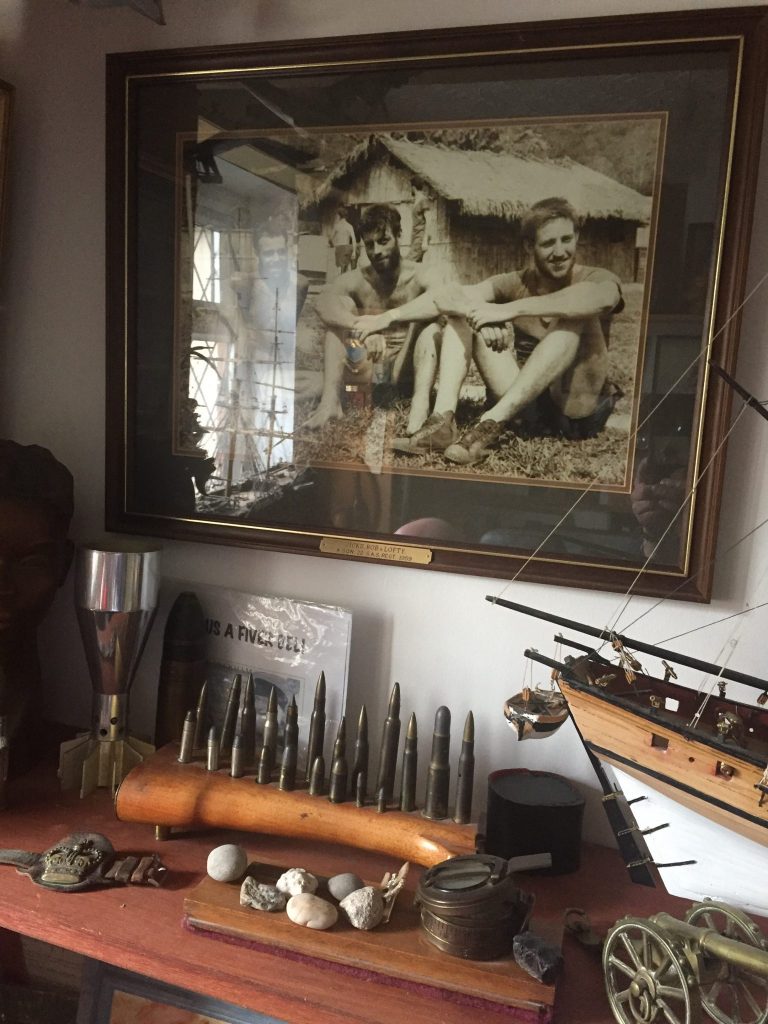
John “Lofty” Wiseman is perhaps best known for his seminal book, The SAS Survival Handbook, which has sold over 3 million copies worldwide. Lofty joined Britain’s Special Air Service in 1959, and was quickly deployed to the harsh and unforgiving deserts and jungles of Aden, Borneo, Kenya and Malay. He later became a driving force in the creation of Delta Force, the US Army’s special operations detachment, after hosting Vietnam vet and green beret Charlie Beckwith in the late 1960s.
“People think it’s romantic, but when you come out of the jungle you are stick thin, covered in leeches and infested with parasites,” says Lofty. “When Charlie [Beckwith] first came into the jungle with us, he caught malaria and all kinds of other diseases. He went from 15 stone to 9 after four or five days, and got casevaced. I was secretly glad because I could get his kit — but when I looked in his bag he only had a candle.”
Beckwith later sent two officers over to do selection with the SAS in Hereford, which would be become the basis for Delta Force back at Fort Bragg, North Carolina.
How to strut your stuff on civvy street
Lofty still teaches field craft and survival skills across the UK through Trueways Survival.
“What put the special in Special Air Service was our ability to endure and operate within the jungles, in particular,” he says. “These days more people are able to do these things.”
Lofty suggests having contingency plans to cover every eventuality, even in civilian life, to overcome a fear of the unknown. “Start building up big pictures about possible negatives. Eighty-five percent is a mental exercise and 15 percent is physical exercise, or fitness,” he says. “There are two psychological factors — fear and pain — which are actually very positive: without fear I would swim with sharks, jump off mountains and put my hand into fire. All animals have these emotions; the fight or flight.”
He suggests that understanding these primordial forces will help us to survive in any environment. “In a fight situation, you improvise and adapt. With fear, the adrenaline lets you run faster and lift heavier weights, like doing a day’s work in minutes, but then the adrenals get knackered. The challenge is the fear of your own weakness.” Lofty advises cultivating an “all-round confidence” about how you are going to handle various scenarios, and that we should “practice what you are bad at”. “Like Murphy’s Law, we should expect that if it can go wrong, it will when we least expect or want it.”
As we have become increasingly cozy and sedated among our domestic comforts of central heating and TV, he warns about the fear of physical discomfort as a discouragement to take action. An over reliance on technology can also be costly, particularly if satellites are knocked out of the sky. “If we had had GPS when I was in the military — oh, the luxury.”
“The tills might be down at the supermarket; you can’t always rely on stores. And mobile phones are great when they are working, but will let you down when you need them most.” If you don’t know what you would do in an emergency, you must start imagining yourself in a worst-case scenario, he says. “Proper planning and preparation is never wasted. You can’t cheat the gym, either. The more effort you put in, the easier it becomes. If I want to climb Everest, I will train in Mount McKinley, Alaska, where the conditions can be even worse.”
The SAS slogan, “train hard, fight easy” applies to civilian life also. “While on an aircraft, one part of me says, ‘I want to get hijacked because I can practice it’. There might be a bomb on board, so I will make out I am the bomber [and put myself in their shoes]. But because I thought of it, it won’t happen.” Lofty’s thinking may seem extreme, but he has not only survived the rigors of special ops for 27 years but has thrived as a pioneer of survival methods that have kept people alive in the harshest of conditions.
“Nobody ever died of pain; they die of shock. It makes us stop and think. All life is a risk; just risk the least. If I am walking through town and some yobs come towards me, do I cross the road and risk the traffic to avoid them? Take the least risks.”
“People take an aspirin for a headache, which gives them a stomach ache, so they take a Rennie, which makes them constipated… Know your own body — what you are like when hungry, thirsty, tired. Know yourself; pay attention to danger signals from your body. Over the years you develop a sense where you can actually smell danger.”
There’s an expression, “don’t take your work home with you”, but Lofty happily disregards it. “As soon as I leave the house, I move up in awareness — a look to the left and right. Nobody ever looks up, and yet that is where danger will come from. Dominate the high ground; that’s where battles are won.”
He advocates being curious and observant when out and about. Interpret what you see. Look behind you; if I don’t look back to where I’m coming from, I may lose my bearings.” He says people outside listening to music with earphones is “an accident waiting to happen”.
A little knowledge goes a long way
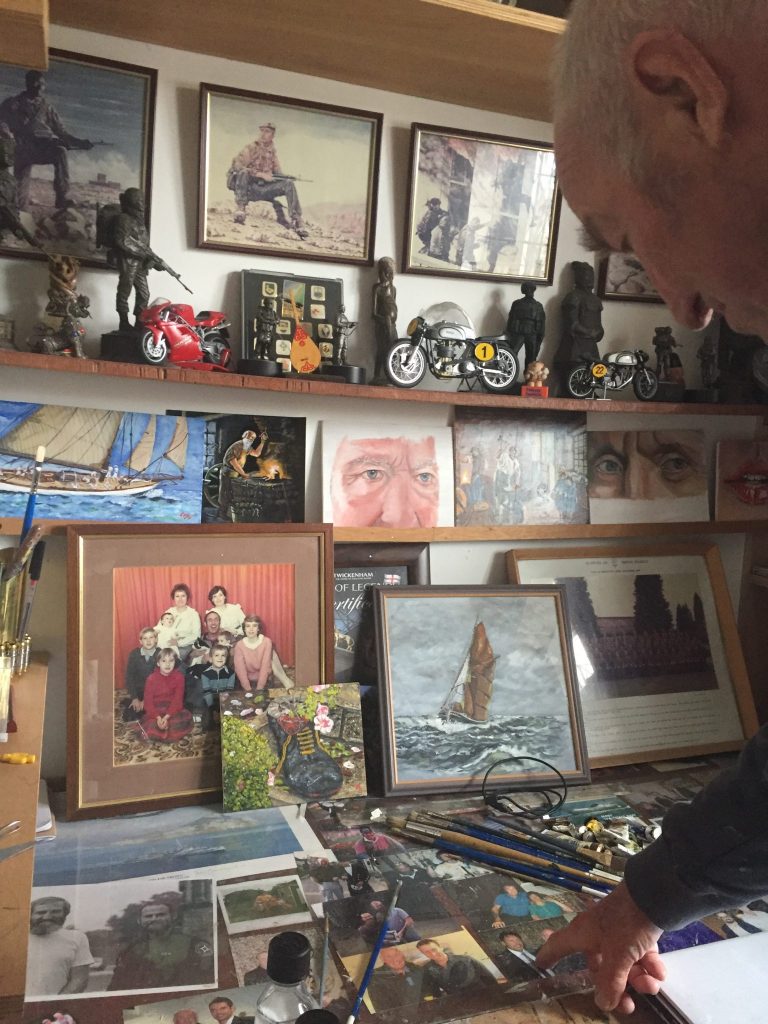
Special forces troops are instilled with the “pyramid of learning” — “Identify the will to live,” says Lofty. “Never give in; things will come in time. It’s not always going to be pleasant, but there’s nothing in the world you can’t deal with if you never give in. Above this comes knowledge. You can never have enough knowledge. From there comes the will to win, succeed.”
He advises keeping “kit” to a minimum. “When you have to carry stuff, you realize how weight is so critical. Weight was such a factor in the Regiment that we would share a book between us out in the field. Make sure you know how to use your kit.” He carries a survival tin with him at all times, which contains small items such as matches, candles, flint and steel, fishing line and hook, a light, scalpel blades, water purifying tablets, medical items and a compass.
Lofty thinks of the compass as his “third eye”. The Regiment is fond of acronyms to get its message across: PLAN — protection, location, acquisition, navigation. These days civilians could be forgiven for applying hostile attributes to their federal and state bodies, as social and economic conditions deteriorate, fueled by media hype and misinformation.
“Make sure it’s safe to stay where you are,” says Lofty. “If I bump into another car, and just scrape the paintwork, I may get hurt by getting out of the car. Don’t let the situation deteriorate further. You can utilize the wreckage; there’s no point stumbling around wasting energy. If necessary, build a shelter.” Part of personal protection in the wild is to build a fire — to sterilize water, keep us warm, cook food and deter animals.
Lofty has been talking for an hour, and is now simultaneously eating a sandwich. I ask him to stop and rest, but he insists, “I can eat under water.” A dry sense of humor is a common attribute of SF soldiers, and I don’t know whether to take his next piece of advice seriously: “You need a mate for survival. You depend on your mate. If we are walking down the road and a dog attacks us, I tell my mate to stand still so that he gets attacked, while I run off. The same with thugs; he stays to get beaten up while I leg it. If we are sharing a hotel room and one of us needs to stay up, I’ll kiss him on the lips and he’ll not sleep all night! Always use your mate.”
Take a ride on the wild side
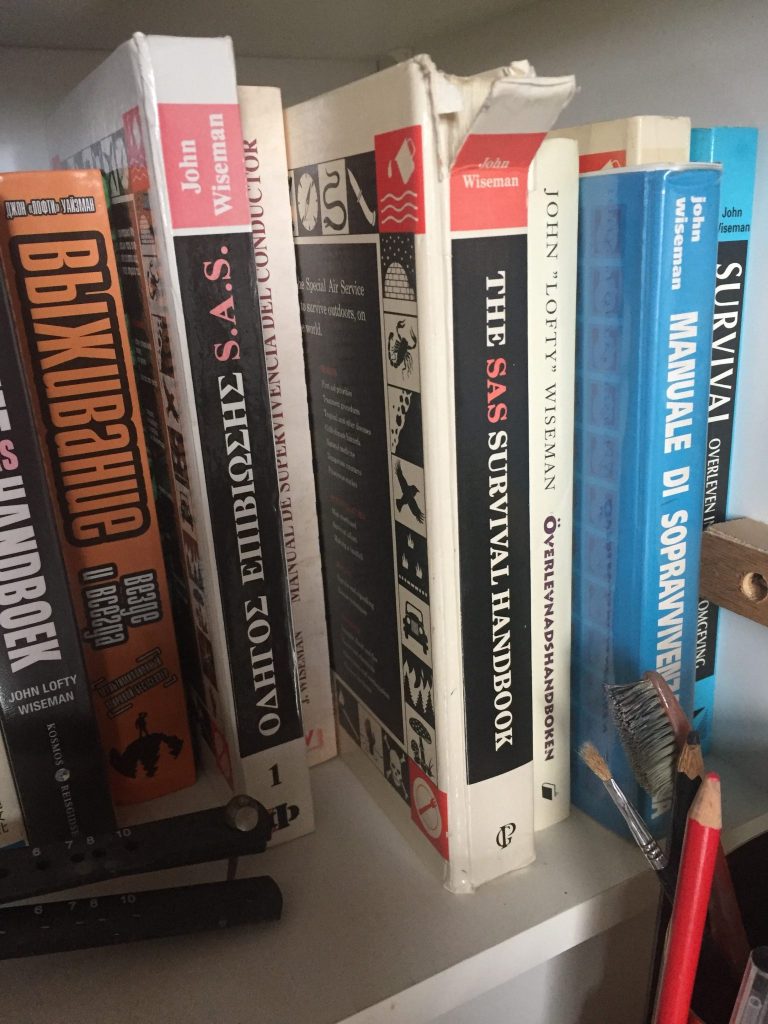
Preppers may want to escape the hub and bub of the metropolis, but there are times when you will want to be found. “There have been cases in Alaska where a pilot has made a brilliant emergency landing, and the passengers have been so busy congratulating him or her on landing safely that they have forgotten to build a shelter, and have fallen asleep, as a weather front comes in.”
The camouflage gear worn by trekkers and hunters in the wilderness can sometimes work against them, as it makes them harder to spot in an acute situation. “Make as big a signal as you can. Tramp an SOS into the snow, make as much noise as possible. Smoke by day, fire by night. You want to stand out like a turd on a pool table. Always carry something with you that you can use to draw attention to yourself. Blow a whistle for five seconds on, five off; same with a weapon.”
“I’m not a pervert: I don’t go around studying urine — but don’t drink it; it can give you renal failure, because it becomes more toxic the more dehydrated you are. Food is not as important as water. You won’t be hungry anyway, if you are low on water, as the body’s organs need it to function.”
If it creeps, crawls, swims or flies, you can eat it, he says. Plants, funghi, insects, fish and game. “If you are not sure about funghi, leave them alone. Amanita phalloides account for 99 percent of fatalities. They taste sweet, but even a small piece is deadly. It wipes out the vital organs. You could feel nothing for 15-20 hours, then collapse. Charcoal from a fire can be used to induce vomit, but poisoning from phalloides would require complete dialysis,” he says.
There are ants and termites on every continent. “Break off a piece of the nest and put it on the fire to create a signal. It will glow for hours at night. The larvae will fall off into a water jug, and can be used as fish bait,” says Lofty. “You need protein for tissue growth, and long term survival. You can get your essential amino acids from worms; just isolate them for 24 hours, to purge them, then leave them to dry in the sun or drop them into a soup.”
Dandelion and nettle are staples in the wild. “Carry out a safety test first, with plants: smell it — does it have the aroma of ginger or garlic? — and then crush it to express the juice. Touch your lip with it; and if after five minutes there is no ill effect, then taste it.” If it burns or stings or is soapy, then that’s a bad sign, he says. Wait a further five hours, then you can eat it.”
Confidence is everything, and forewarned is forearmed. This approach and these methods are not designed to instill fear in the reader, but to provide insights into how the best survivalists in the world live their lives with panache and humor.
A comprehensive range of products is available through Corey’s Camp for prepping, camping and going off-grid. Lofty has written numerous books — including works of fiction — that continue themes of urban survival, advanced tactical driving and the psychology of success.
If lockdowns, mask mandates and Covid hysteria haven’t dented your faith in “government for the people”, then perhaps the attempt by some municipalities to ban rain water storage should trigger something primordial in you. And that’s quite apart from the chemical concoctions added to public water supplies. Nature knows best, and is the medial point between the individual and the cosmos; it is where healing and nurturing awaits you patiently and unconditionally. In times of transition such as these, you may wish to get better acquainted with its embrace, — for an hour, a day or as your new home.
Home is where the heart is
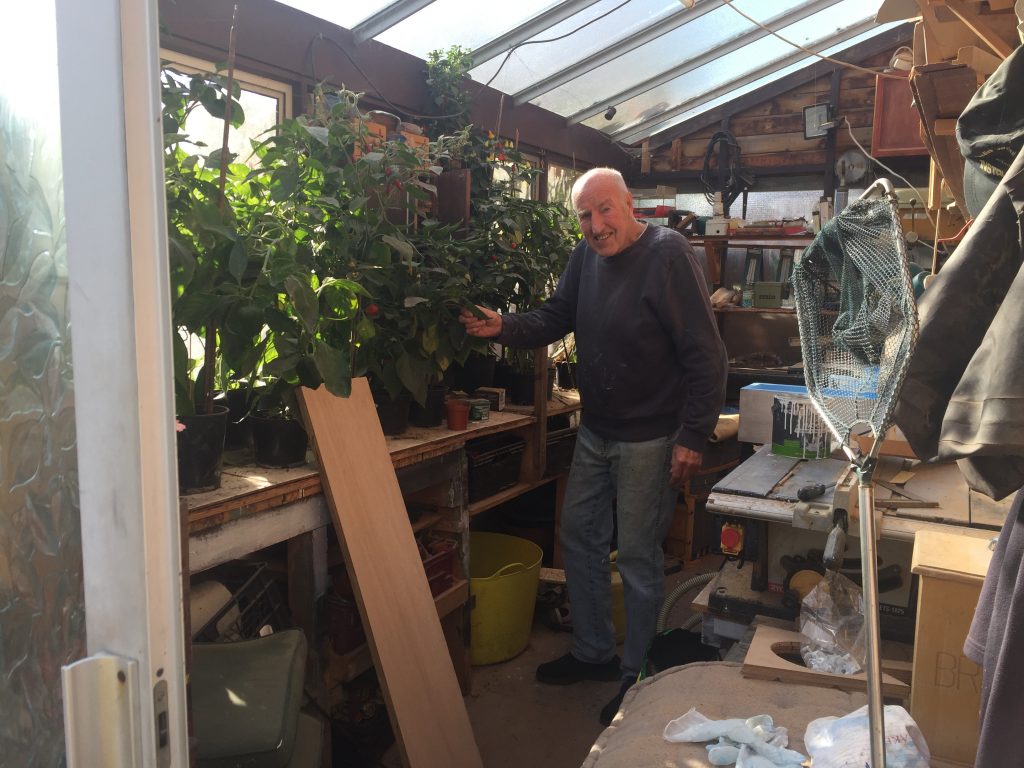
Lofty lives in a spacious and comfortable house on the edge of Hereford, England. The rooms are dotted with his accomplished paintings of people, animals and landscapes, and include oil renderings of American frontiersmen and pioneers from the great wilderness.

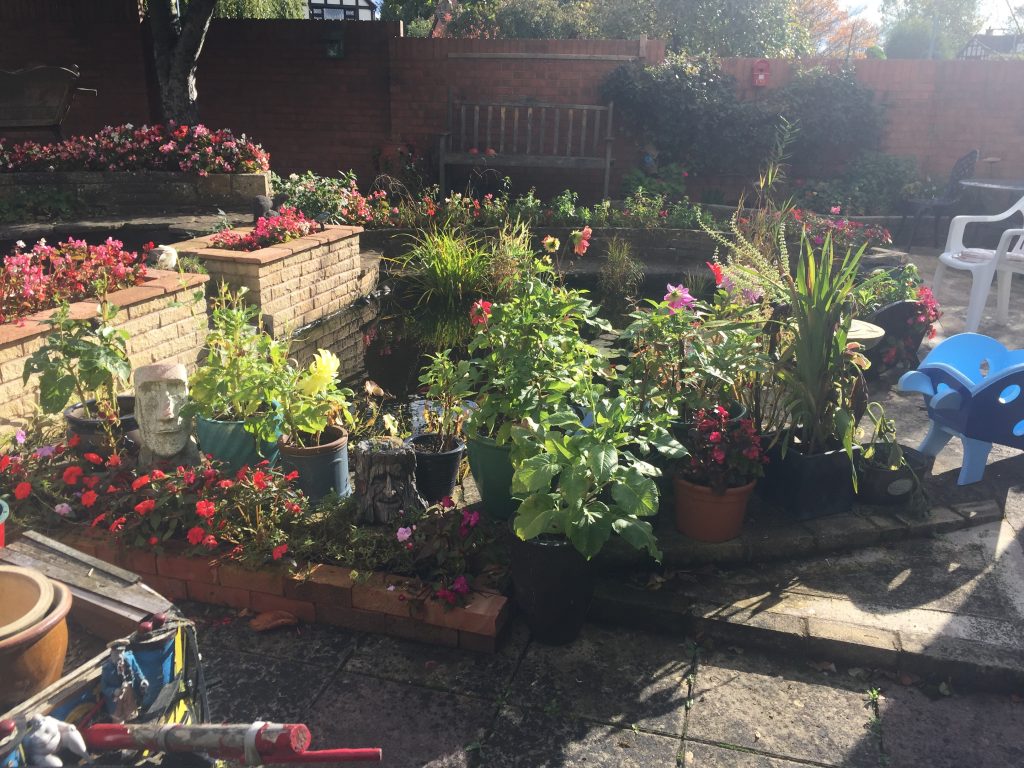
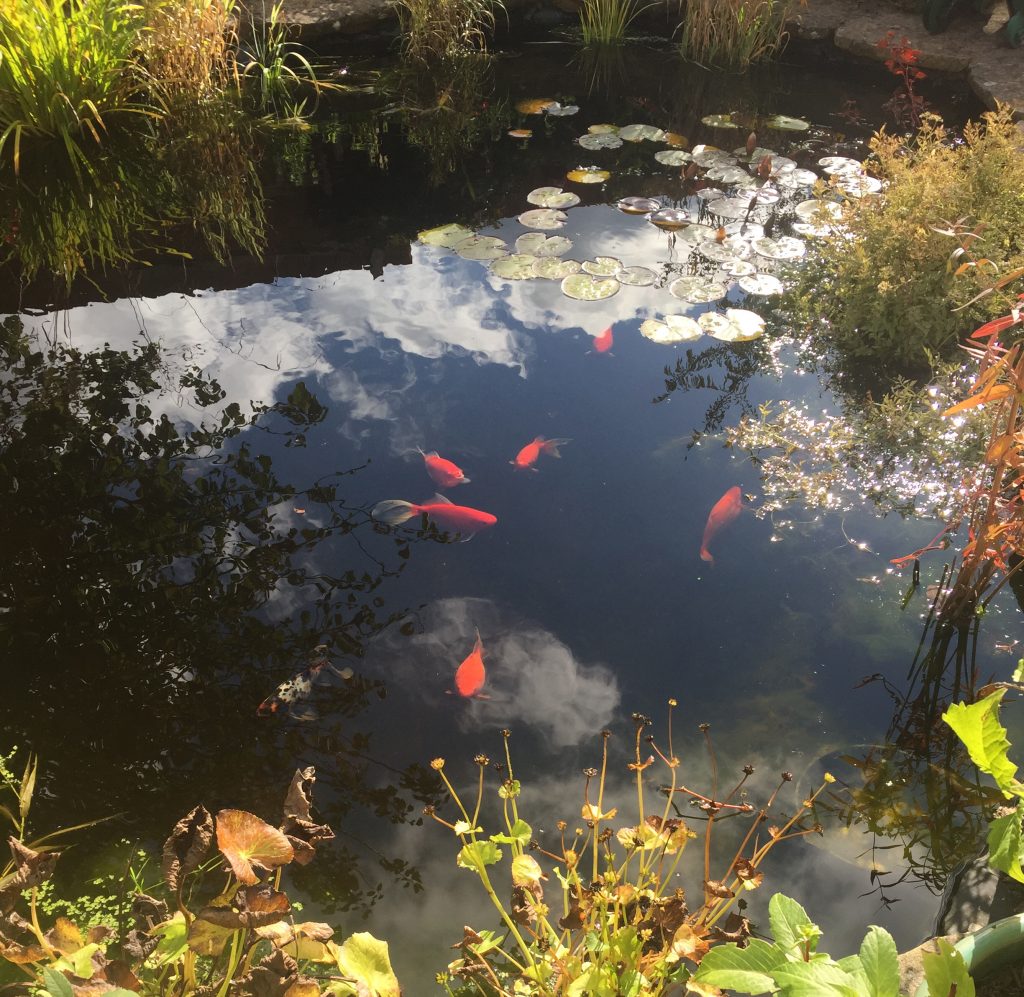
He hewed and sculpted the garden by hand to form tiers and a fish pond. Ornate plant pots dot the neatly coiffed grass and beds, but beneath the veil of English rustic charm lies a functional purpose. The pots contain edible plants, the pond can be used to store a large number of fish and the potting shed and greenhouse contain all manner of exotic vegetables.
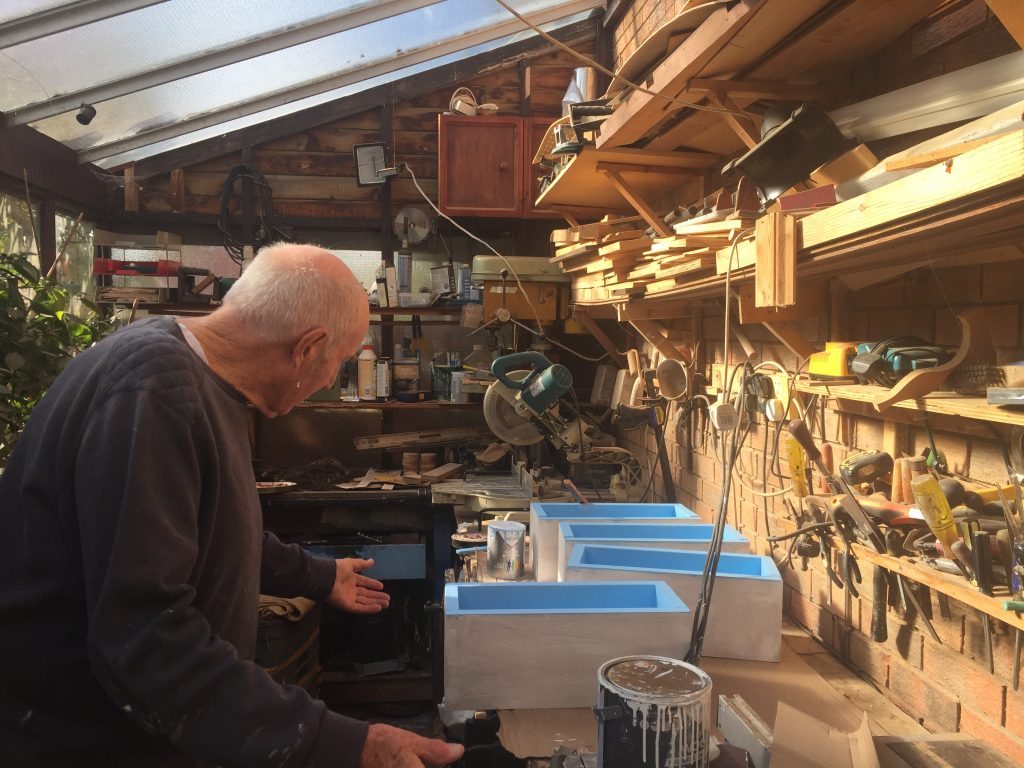
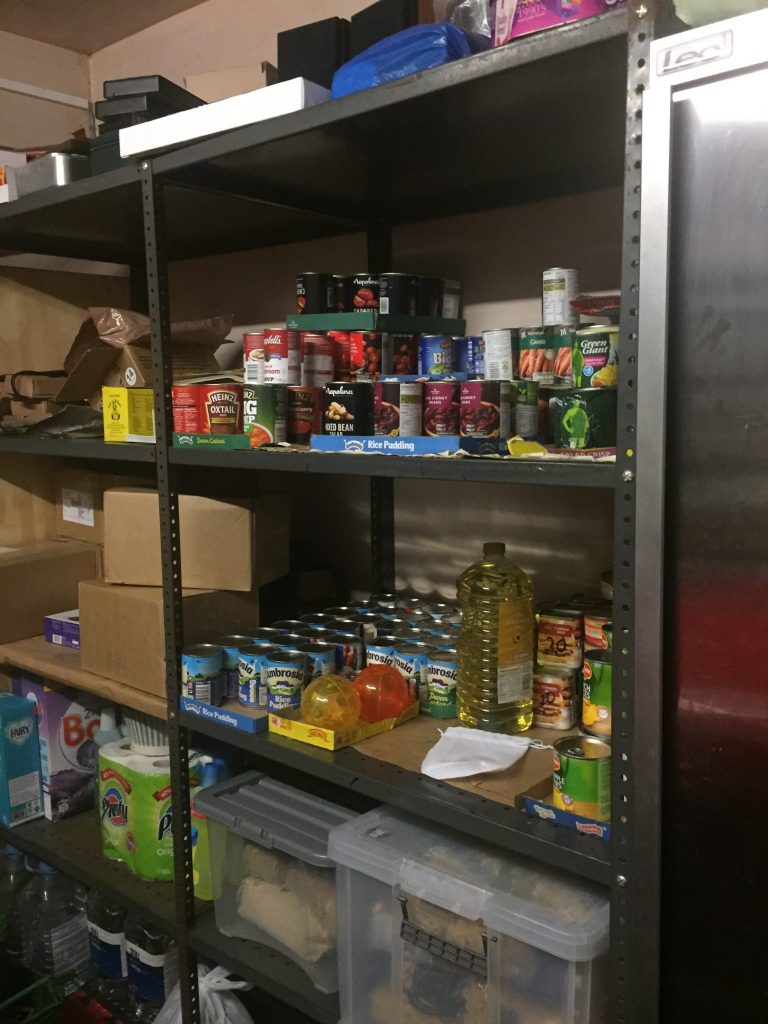
Lofty’s garage doubles as a food storage area, where he carefully rotates the canned goods to ensure they are never allowed to expire. He stores heirloom seeds that can be transported easily and which have not been subject to genetic modification.
As I go to leave, Lofty hands me a poly bag full of fresh vegetables — zucchini, broccoli, green beans. “I’ve got a friend who’s a local farmer. He keeps me stocked up. There’s plenty to go round,” he assures me. Lofty’s generosity of spirit and ability to laugh in the face of adversity ensures that he will be well placed to weather any storms that might be on the horizon — political, economic or climactic. He is a living example of “plan for the worst, but expect the best.” I’ll take a leaf out of his book any day.
Who dares wins.









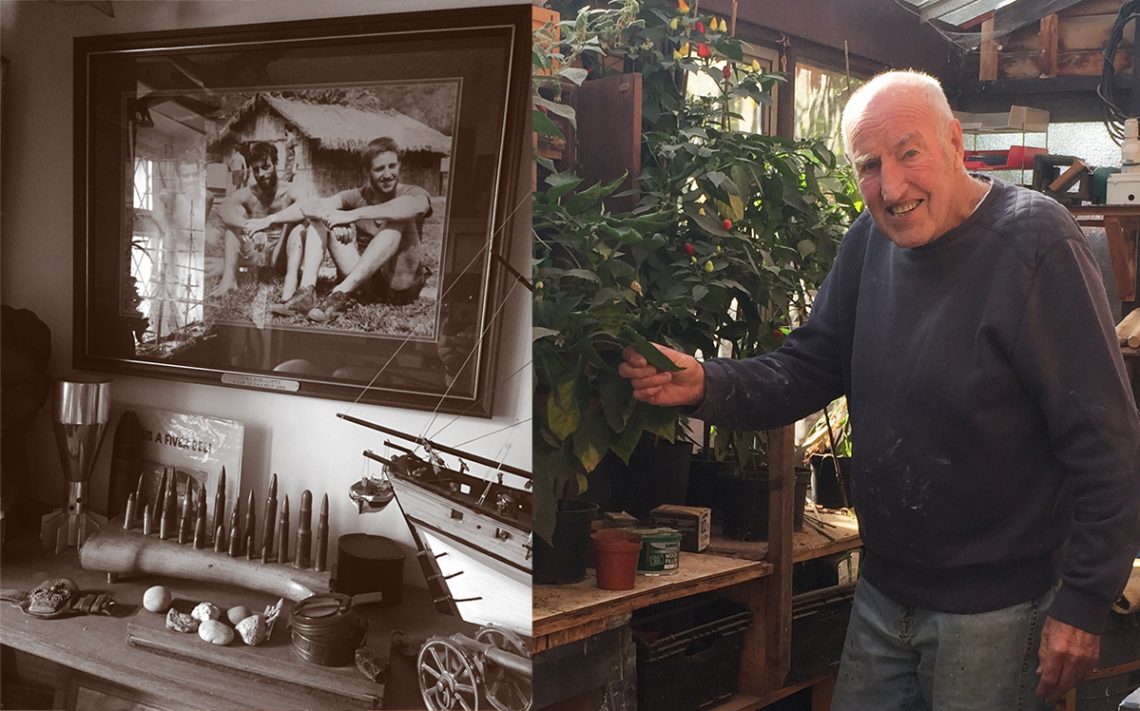

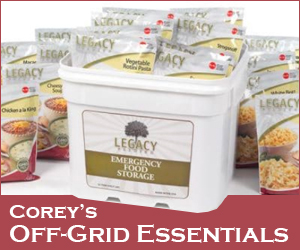
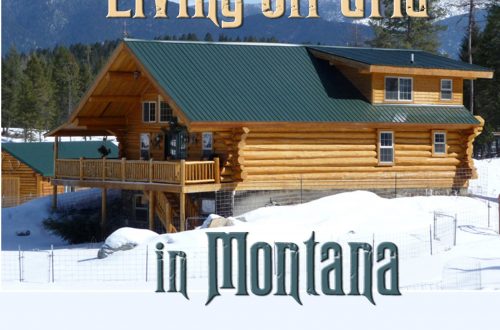
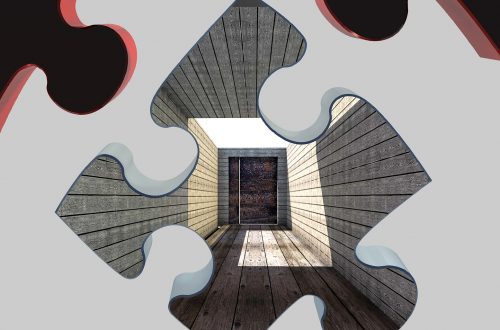
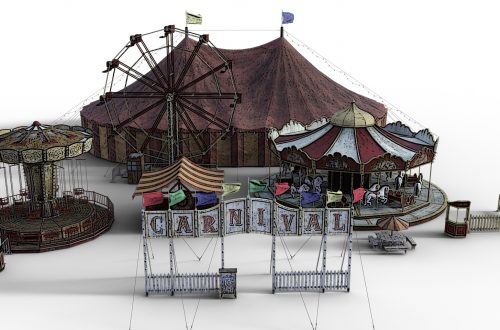

4 Comments
John
An excellent article. I fully concur.
There are few that have valour.
There is another in in your country.
He cannot be corrupted and doesn’t flinch or buckle. I hope Trump is your president again come November 2020.
The free world is depending on it.
James Fitzgerald
Thanks, John.
Yes, this is the time for warriors and valor. We are all showing our true colors under these harsh conditions; wheat from the chaff, etc.
Kari Schneider
I started prepping back in 2014! This is a necessary reminder, most people don’t want to think about, but think about it we must and stock up! It’s actually fun!
James Fitzgerald
Hi Kari,
You are right about the cognitive dissonance at work. Put the word ‘prepping’ in a headline, and readers run a mile. I was reluctant to bite the bullet for a long time – but when you make the effort, it’s fun and liberating to whatever extent you want it to be.